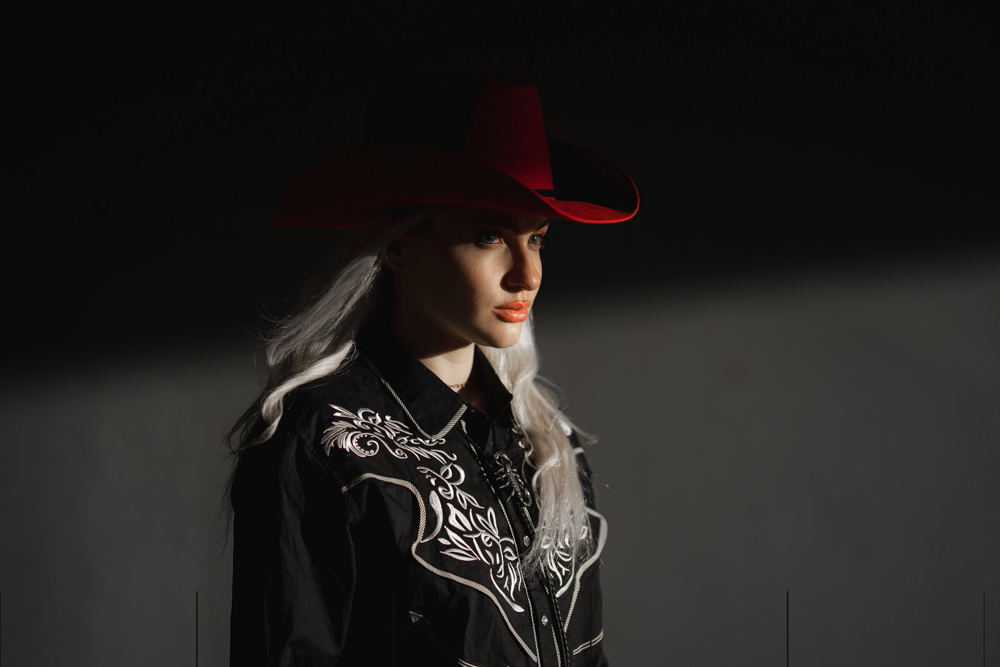Alternative country artist DEVORA is bringing the deserts of the wild west to Boston’s MGM Music Hall Tuesday night. Following last month’s release of her new EP “God is Dead,” the musician will be touring with Bush and performing a setlist that encapsulates the nostalgic and colorful motifs of the American Wild West.
“It’s great to finally have the songs out now,” she said. “I’m looking forward to playing them live.”
From blood-soaked hotel rooms to riding through ghost towns to adventuring into a setting sun, the imagery laced within the lyrics of “God is Dead,” DEVORA said her “Wild West” upbringing in rural Arizona affects every aspect of her music and the stories she tells.

“The imagery and the experience of it has been cemented in my brain from a very young age,” she said. “So being able to tell these stories but also weaving them with my experiences in high school and beyond and keeping them modern day and relevant, it’s been really cool to go on that journey.”
Alex Eduarte, a sophomore in Sargent College of Health and Rehabilitation Sciences, said she “fell in love” with DEVORA’s music after finding it on her Spotify “Discover Weekly” playlist.
“I really liked the storytelling of it all,” Eduarte said. “The lyrics were very descriptive, in the sense of, combined with the beats and the overall tone of the song, you’re really able to just feel the message that she’s trying to convey.”
Though she grew up listening to country music, DEVORA said, she listened to emo, goth and industrial music as well.
“I always kind of wished that I could listen to some country music that captured that angst and that realness,” DEVORA said. “This was kind of born out of that and taking topics that aren’t necessarily comfortable to talk about or that are kind of taboo and putting a spotlight on them.”
Combining a love of classic Americana themes with an intense and transformative modern eye, DEVORA has labeled this genre “outlaw pop,” which she said was “pioneered” with her fans.
“It’s basically music for people that take the road less traveled and that aren’t afraid to stand up for what they believe in,” DEVORA said. “It’s definitely all about going your own way and being your own individual and being your own unique person. It celebrates all of that.”
The idea of “outlaw pop” has garnered the attention of her fans — including Eduarte.
“It’s really easy for new artists to be kind of shoved into these boxes,” Eduarte said. “And I think for her to, right out of the gate, be like, ‘I’m doing my own thing and it’s kind of like my own genre and I’m not letting anybody define it but myself’ is really cool and really unique, so I’m just excited to see the direction that she goes in in the future.”
Isabella Lapriore, a freshman in the College of Communication, said she discovered DEVORA through a Spotify-curated playlist containing her popular song “Not Dead Yet.”
“It’s a lot more raunchy than your average country pop,” Lapriore said. “I feel like this has some grit to it. It’s a little grungy. It has a little more of an emo, so to speak, aspect to it, and I really like that.”
DEVORA herself has embraced the “outlaw pop” mentality of taking the path less traveled. Though the musician briefly attended Berklee College of Music in Boston, she decided to pursue music on her own terms. It wasn’t an unnatural step for her, though — DEVORA said music has always been an instrumental part of her life.
“There was never a question of what I wanted to do, and then that evolved into songwriting and storytelling, and now we’re here,” DEVORA said.
The love of music that infused DEVORA’s childhood has now led her to the rock venues and stages of Boston, Nashville and New York City, allowing the artist to spread the concept of “outlaw pop” from coast to coast.
“It feels fresh and exciting, and I’m really grateful to be on this journey right now,” DEVORA said.
DEVORA said pursuing a passion in the music industry — particularly in the country genre which has traditionally been male-dominated — can be “a long and windy process.”
“Trust the process and trust in your art and what you’re putting out and what you’re saying,” she said. “The more authentic you are, and the more real that you are to yourself, people feel that and they resonate with it.”
















































































































